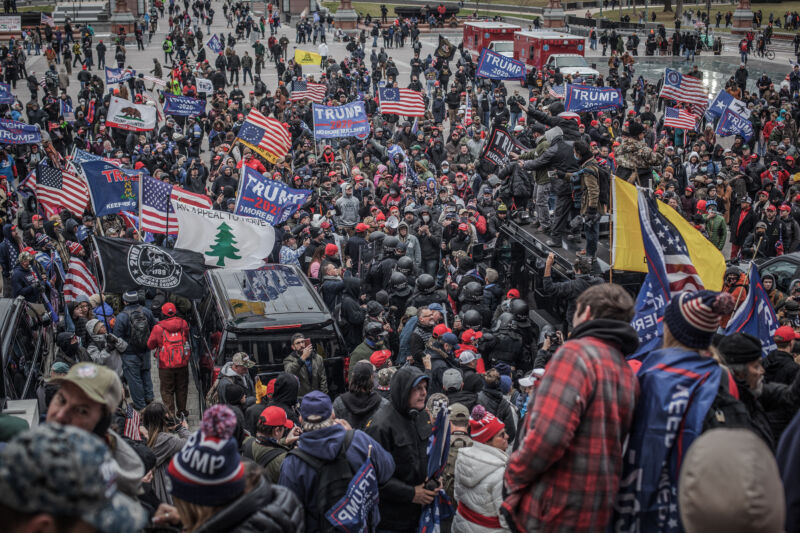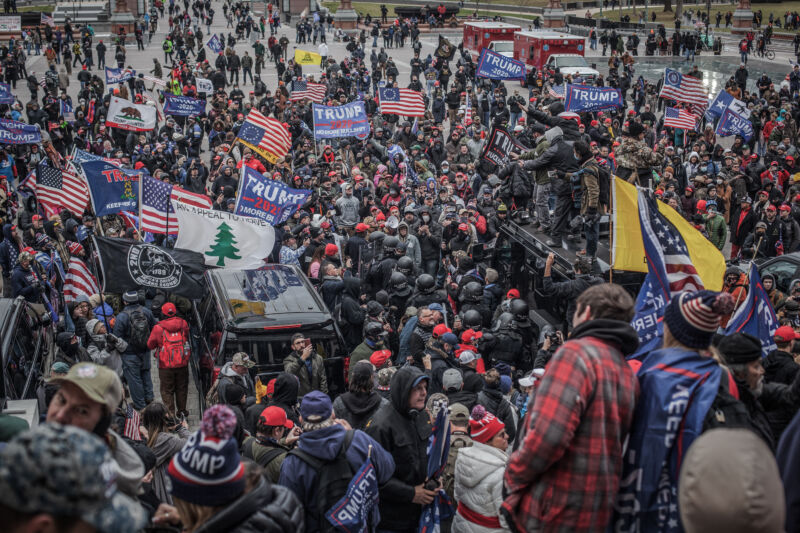
Enlarge / Trump supporters near the US Capitol on January 6, 2021 in Washington, DC. The rioters stormed the historic building, breaking windows and clashing with police. (Photo by Shay Horse/NurPhoto via Getty Images)
It’s a dark moment in American history that will not be soon forgotten. On January 6, thousands of supporters of soon-to-be-former President Donald Trump gathered for a “Stop the Steal” rally in Washington, DC, to protest the certification of the 2020 election results by Congress. Speaker after speaker pumped up the angry crowd by repeating false claims of widespread election fraud, culminating with an address by Trump himself, in which he called on his followers to “fight like hell” and march on the US Capitol. The result: frenzied rioters overran Capitol Police, smashing windows and triumphantly posing for selfies as they roamed through the evacuated building. By the time the National Guard regained control, five people were dead, including a Capitol Police officer.
As people struggled to process the horror in the immediate aftermath, Michael Bang Petersen, a Danish political scientist at Aarhus University, weighed in on Twitter with some counter-intuitive commentary. While the predominant theme among many pundits centered on the role of Trump and his enablers spreading lies about widespread voter fraud and then whipping the crowd into a frenzy during that morning’s rally, Petersen suggested that perhaps they had it backward. “Did protestors storm Congress because they followed Trump and believed his misinformation about the US election? No,” he tweeted. “They followed Trump and believed in misinformation because they wanted to storm Congress.”
Petersen’s background is in evolutionary psychology, and his research focuses on how the adaptive challenges of human evolutionary history shape the way modern citizens think about mass politics. Back in October, Petersen published a review paper in the journal Current Opinion in Psychology, making the case for his thesis that “mass mobilization”—like we saw with the Trumpian insurrectionists storming the nation’s Capitol—is not the direct result of manipulation by misinformation/wild conspiracy theories spread by a dominant leader. Rather, the paper said, those factors are vital tools for coordinating individuals who are already predisposed to conflict.





